Making the most of limited instruction
Last updated 11/24/2020 at Noon
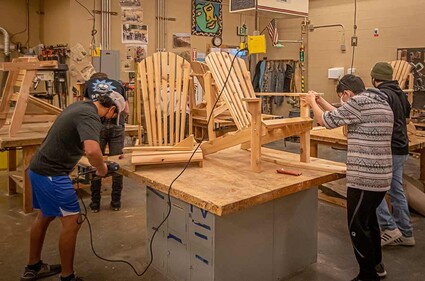
Jerry Baldock
The wood shop at Sisters High School remains active as students get some hands-on building experience crafting Adirondack chairs.
The three themes undergirding the work of Sisters School District — Belong, Prepare, Inspire — are harder to accomplish during the battle with COVID-19 and the resultant distance learning. The teachers of Sisters middle and high schools are doing all they can to safely offer person-to-person interaction through what is known as “limited in-person instruction” under the state’s “Ready School, Safe Learners” guidelines.
Limited In-Person Instruction, or LIPI, allows schools to meet in small groups with time restrictions. According to Tim Roth, the assistant principal at Sisters Middle School, teachers have found ways to employ LIPI in most core subject areas such as music, art, various electives, counseling, academic support, and co-curricular activities.
Roth said, “Right now LIPI is imperative...and mission-critical. Many of our kids are down in one way or another — they are isolated.”
He continued, “Even the students who typically don’t like school are truly excited for the opportunity to come back in. They want to be here.”
That is not to say some students aren’t thriving in the virtual classroom, according to Roth, but, he said, “Humans are meant to be together and kids are eager to have ways to connect.”
There are limits to LIPI including the number of people using the building, meetings cannot be a required part of the regular curriculum, cohort size is restricted and students can only meet outside of the regular class hours established for Comprehensive Distance Learning.
Mike Geisen, who teaches core science classes at the middle school, also instructs an elective course known as ECoS (Earth, Community, Self) and has found ways to get students out on some limited expeditions this fall.
“We’ve been doing as much as we can to connect our students with each other and with the natural world,” he said. “We’ve obviously had to scale back quite a bit from our usual autumn bevy of activities, expeditions, and field studies, but we’ve been able to meet most Fridays in smaller groups to do everything from map skills to orienteering, rappelling to tree ascension, and a variety of forestry skills to fire ecology.”
The class also made outings to Belknap Crater and into the North Santiam Watershed.
“We did a scaled-down version of our Belknap Expedition that was only a day trip instead of two nights, but we still managed to rappel into a volcano, crawl through a lava tube cave system, and summit another volcano,” Geisen said.
“Our usual October backpacking expedition to the Strawberry Mountain Wilderness had to be canceled for a variety of reasons regarding COVID protocols and family situations,” he continued. “However, we were able to get all 27 ECoS students (and a few others) up into the high canopy of an old-growth forest in the North Santiam watershed to study forest ecology, lichens, and canopy science up 170 feet in a giant Douglas fir.”
He sees great benefits for his students, saying, “Kids are excited to be out and about, and doing things with their friends. It’s good for their bodies, minds and mental health. It’s been wonderful to be able to build relationships with them in person, which then carries over into the online world of instruction on the other days of the week.”
In-person gatherings of any kind carry some level of risk that has to be mitigated.
Roth noted, “I want people to know we are working diligently to do this in a way that keeps all of us as safe as possible. We must remain diligent.”
Guitar-building, one of the signature electives at Sisters High School, is happening thanks to the efforts of instructor Tony Cosby, who is also teaching an introductory woods class and an engineering course.
He said that Career and Technical Education (CTE) classes are allowed to include 10 students at one time, so he breaks his classes up into smaller groups and arranges times for students to come in to work.
“Building an instrument in a small group works well because it is the best way for an instrument to be built,” he said.
Under normal circumstances Cosby has a number of volunteers for his classes, but cannot access them for the time being, making the small numbers essential.
“I think the kids are excited to be off of their computers and working with their hands,” he said.
High school science teacher Rima Givot has been able to offer outings to the Trout Creek Conservation Area to her biology students and has arranged in-person labs for her chemistry students.
“In chemistry, the students come to school in person once a week to conduct a lab,” she said. “So over the term each student had the opportunity to learn in the lab five times.”
Sisters High School Principal Joe Hosang is pleased with the work his staff is doing to engage students under LIPI guidelines in activities including Socratic seminars, art and music, support for struggling freshmen and tutoring in core subjects.
“We are steady as we go,” he said. “Many on our staff are bringing in students one way or another.”
With Comprehensive Distance Learning likely to continue into 2021, the use of LIPI may be more crucial than ever.
“It’s complicated,” concluded Geisen. “There are very real risks and there never seems to be enough time, but the benefits can be quite high for students and families.”

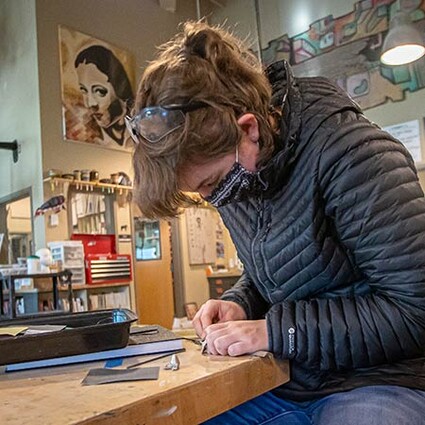
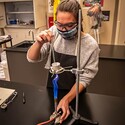
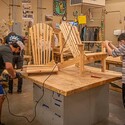
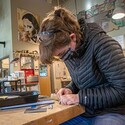















Reader Comments(0)